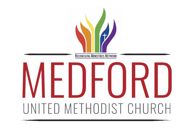
16 God so loved the world that he gave his only Son, so that everyone who believes in him won’t perish but will have eternal life. 17 God didn’t send his Son into the world to judge the world, but that the world might be saved through him.
Reflection
Do these words sound familiar to you? Possibly you began reading this passage and in your head it started to take on the cadence of a childhood pastor. It did for me at least. Depending on how a pastor decides to structure a worship service, many, particular in protestant circles, practice communal confession. You may be able to think of it as a time early in a worship service where the whole room reads a lengthy prayer together out of the bulletin about how, though we may try to do right, we fail. This corporate confession is often followed by a time of silence where people can think about more personal or specific things they would like forgiveness for. Then, the pastor may chime in with this passage:
Hear the good news: God so loved the world that he gave his only Son, so that everyone who believes in him won’t perish but will have eternal life. God didn’t send his Son into the world to judge the world, but that the world might be saved through him. In the name of Jesus Christ, you are forgiven!
Often, the congregation responds with, “In the name of Jesus Christ, you are forgiven. Amen.” Not only do I find it to be theologically significant that not only does the pastor offer Christ’s forgiveness to the congregation but the congregation offers it right back to the pastor, but also the weight that communal confession can hold. To be perfectly honest, I really never thought beyond the need to find one of these prayers when setting up a bulletin. That is until I lived in an ecumenical environment.
When studying Christian unity in Switzerland, we were assigned different days to lead morning prayers. Sometimes it was by denomination, by region, or purposely mixing. When planning the liturgy for the North American service, one of my Presbyterian colleagues begged us to have a Prayer of Confession and an Assurance of Pardon in our liturgy. Many of the other students who practiced confession as a sacrament (Catholics and Orthodox) had the opportunity for confessions and pardons in private with their own denominational church leaders. It had been months since it was used in liturgy because there were many students who don’t have it in their liturgy. We used it, many colleagues had questions about why we have corporate confession. I realized I didn’t have too many answers.
The energy of my Presbyterian friend, though, inspired me to think more critically as to what it means to pray for forgiveness as a church body. We’re not alone in our mistakes. We can offer confession and receive forgiveness for our friends who aren’t quite ready yet. When one part of the church body is in need of forgiveness, the whole body asks for it.
I no longer just read past that part of scripture, but do all I can to embody it.
By Rachel Callender
For Pondering & Prayer
Who is someone that you can share in communal confession with? What would it look like to outwardly lift one another up in Christ’s ever-flowing forgiveness?
Prayer: Forgiving God, there are many beautiful, authentic ways to come to you with our confessions. We ask that you hear each broken, flawed, growing attempt to grow closer to you and to be the kind of people who recognize your forgiveness in ourselves and others. Amen.
